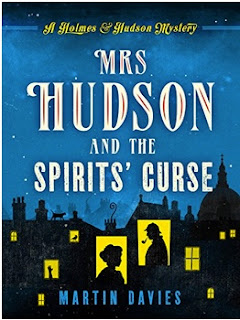I read fifteen books in April – this is the
second of two blog posts about them; you can read the first here.
Where the Crawdads Sing by Delia Owens
Read on Kindle. At the time of my writing,
the book has a staggering 40,393 reviews on Amazon
UK with an average rating of 4.5. It’s the author’s first novel but she is an
acclaimed zoologist who has written extensively about Africa. A film is on its way (inevitably).
Set in the swamplands of North Carolina,
it’s the story of a girl – a small child – abandoned by one family member after
another and left to fend for herself, which she does most resourcefully and in
the process becomes an expert on the flora and fauna of the area. It’s a place
where there are racial tensions and where passions and tempers run high and
women do not come off well most of the time. There’s a murder.
For me, there are echoes of three books I
love: Crow Lake, To Kill a Mockingbird
and Girl of the Limberlost. The writing is lyrical and the
descriptions of the swamps are breathtaking; I was right there in the humid
marshlands.
Towards the end though I felt as though we
were rather hastily being told what was happening rather than being shown and I
had more questions than answers regarding the identity of the murderer.
Cold Sassy Tree by Olive Ann Burns
From Christian Aid Book Sale 2019. After
reading Where the Crawdads Sing my
journey in the American South continued. This book answered a question I’ve had
about some towns in America having banal names. ’Twas not always so, apparently.
The real town that inspired the setting for this book was originally called
Harmony Grove but at the beginning of the 20th century this was regarded as too
‘folksy’ and old-fashioned and the name was changed to – Commerce.
Written in the 1980s, the book is set in
1904 and has a terrific main character, a lad of fourteen who is good-hearted
(mostly) but a great gossip and eavesdropper. Amid the tattle tales and
scandals and tragedies, the changing face of rural America is apparent with, for example, the
car beginning to replace the horse.
Mrs Sinclair’s Suitcase by Louise Walters
From charity shop to whence it shall return
as soon as possible.
Dual narrative: early 1940s with Dorothy, and
2010 with her granddaughter Roberta. Long-lost families, a character who works in a second-hand bookshop
and finds letters etc inside books – this ticked several much-loved book themes
for me. Before I read it, that is.
I did finish it but it left me
completely cold; not one of the characters came alive. Whatever their
era/age/gender/nationality/background, they spoke (and wrote) indistinguishably.
No matter how much the author tried to tug on my heartstrings they remained resolutely
untugged.
And, for a book with literary pretensions,
the out-of-the-blue revelation at the end about bookshop owner Philip was
ludicrous; it had me burst out laughing, not the author’s intention.
If it’s a story of estranged families and
second-hand bookshops you’re after, then read Lost for Words by Stephanie Butland. I liked it so much I almost got a tattoo.
Murder at the Brightwell by Ashley Weaver
Read on Kindle. First in this 1920s cosy crime series
with an aristocratic young woman sleuth called Amory Ames. Very enjoyable; I
will read more of them. Amory’s unconventional relationship with her husband
Milo adds extra interest.
Mrs Hudson and The Spirits’ Curse by Martin Davies
Holmes & Hudson Mystery Book 1. I loved
this. The conceit is that housekeeper Mrs Hudson is even more gifted a case
solver than her famous employer, aided by her plucked-off-the-street kitchen maid,
Flottie (short for Flotsam). Mrs H has friends everywhere – from the great and
the good from previous employments, who are in her debt for various reasons, to
the street urchins who are her eyes and ears. The author conjures up Victorian
London just as well if not better than Arthur Conan Doyle.
The Publishing Game by Edward Stourton
Bought at the Edinburgh Book Festival last
year after hearing him speak. It’s a history of the family-run publishing
company Hodder & Stoughton (pronounced Stoaton in case you were wondering).
By default it’s also a history of ‘the publishing game’ from Victorian times up
until the early 1980s when so many long-established companies were subsumed
into conglomerates.
I worked in publishing in London (for
Hutchinson, now part of Random House) from 1976 to 1982 so it is a subject dear
to my heart.
Girl, Woman, Other by Bernadine Evaristo
Read on Kindle for (zoom meeting of) Book
Group. Famously, joint winner of the 2019 Booker Prize.
Once I’d got over (and I quickly did) the
style (no full sentences, little punctuation) I whizzed through this and found
it thoroughly entertaining and thought-provoking (the two things don’t often go
together I would suggest): interwoven stories of twelve black women in Britain
from the early 20th century to the present day.
Would bear re-reading in paperback I think,
where it would be easier to flick back and remember how the women are
connected.







No comments:
Post a Comment